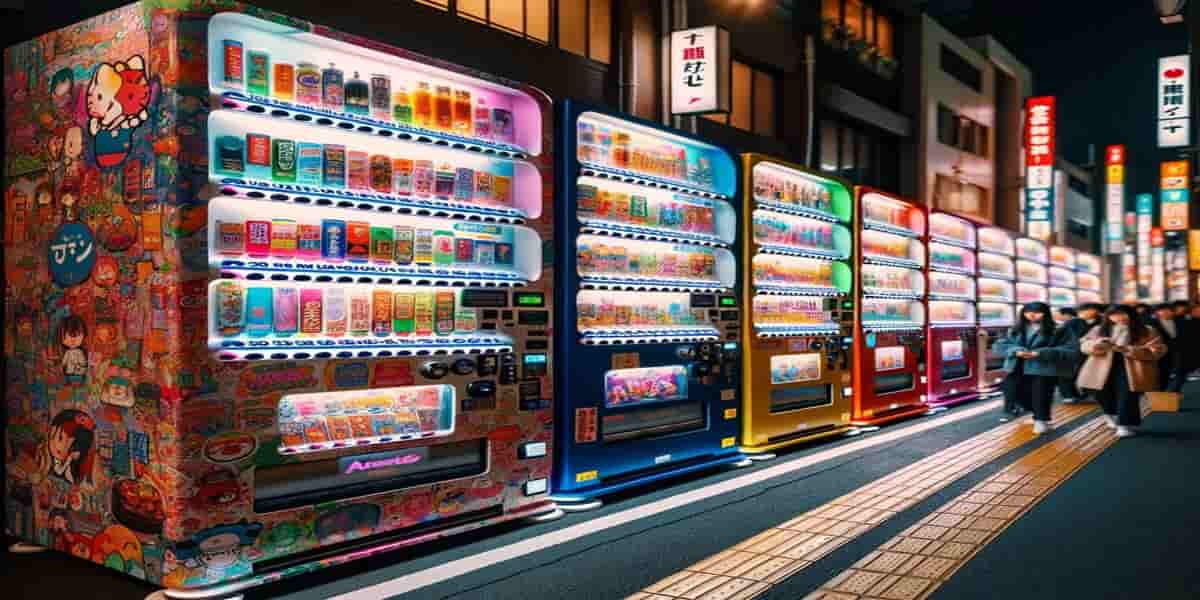Japan’s Vending Machine Culture: One for Every 40 People
Doodlebrary
- High Vending Machine Density
- Japan has one vending machine for every 40 people.
- Approximately 5 million vending machines are spread across the country.
- The first modern vending machines in Japan appeared in the 1950s.
- Early machines primarily sold cigarettes and beverages.
- Over time, the variety of products expanded significantly.
- Beverages: Hot and cold drinks, including coffee, tea, and soups.
- Snacks and Meals: Instant noodles, rice balls, sandwiches, and fresh produce.
- Unique Items: Umbrellas, neckties, books, toys, and even fresh flowers.
- Specialty Machines: Some offer regional delicacies, sake, and ice cream.
- Technological Advancements
- Many machines are equipped with touch screens and contactless payment options.
- Some use facial recognition to recommend products based on the user’s profile.
- IoT-enabled machines allow operators to monitor stock and performance remotely.
- Reflects Japanese values of convenience, cleanliness, and hospitality (“omotenashi”).
- Strategically placed in urban and rural areas for accessibility.
- Regularly maintained and kept clean, aligning with Japan’s high standards of public hygiene.
- Generates billions of yen annually in revenue.
- Supports employment in manufacturing, maintenance, and logistics.
- Contributes to energy efficiency with eco-friendly machine designs.
- Integration of artificial intelligence for personalized recommendations.
- Increased connectivity with other smart devices.
- Introduction of more health-conscious and eco-friendly product options.
- Japan’s vending machines are more than just a convenience—they’re a cultural icon.
- With continuous innovation, they will remain an essential and fascinating part of Japanese daily life.
